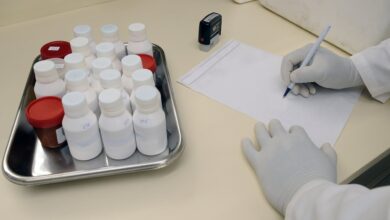How To Treat Infection After Abortion

Recently, the internet has become a vast repository of information on various topics. When it comes to seeking information on sensitive subjects like post-abortion care, it’s essential to have access to reliable and comprehensive resources. If you’ve found yourself here, you’re likely searching for guidance on how to treat an infection after an abortion. We understand the importance of this topic, and in this article, we will provide you with an in-depth guide on the subject.
Understanding the Risks: Infection After Abortion
Before we delve into the treatment options, it’s crucial to understand the potential risks and complications that can arise after an abortion. While abortion is generally a safe medical procedure, like any other surgical intervention, it can lead to post-operative complications, including infections.
Post-Abortion Infection: What to Look For
- Fever: A persistent high fever can be a sign of infection.
- Abnormal Discharge: Unusual or foul-smelling vaginal discharge is a red flag.
- Pelvic Pain: Severe or persistent pelvic pain is cause for concern.
- Heavy Bleeding: Excessive bleeding after an abortion is not normal.
- Prolonged Symptoms: If symptoms persist for an extended period, consult a healthcare provider.
Seeking Professional Help
If you suspect that you might have developed an infection after an abortion, the first and most crucial step is to seek immediate medical attention. Do not delay; early intervention is key to preventing complications.
Contacting Your Healthcare Provider
- Call Your Doctor: Reach out to the healthcare professional who performed the abortion or your primary care physician.
- Describe Your Symptoms: Describe your symptoms to facilitate an accurate diagnosis.
- Follow Their Instructions: Your healthcare provider will guide you on the next steps, which may include a physical examination and possible tests.
Treating Abortion-Related Infections
Treatment for post-abortion infections typically involves antibiotics and, in some cases, additional medical procedures.
1. Antibiotics
Antibiotics are the primary line of defence against infection. They help the body fight off bacteria causing the infection. The type and duration of antibiotics will depend on the specific infection and your healthcare provider’s recommendations.
2. Additional Medical Procedures
In severe cases, if the infection has led to complications like an abscess, further medical procedures may be necessary. This could involve draining the abscess or, in rare instances, surgery.
Self-Care at Home: Medical Treatment

In addition to medical treatment, there are several self-care measures you can take to aid in your recovery.
1. Rest and Hydration
Rest is essential for your body to heal. Ensure you stay well-hydrated to support your immune system in fighting the infection.
2. Pain Management
Over-the-counter pain relievers like ibuprofen can help manage discomfort. Always follow the recommended dosage.
3. Follow Medical Instructions
Strictly adhere to your healthcare provider’s instructions regarding medication and follow-up appointments.
Preventing Infections After Abortion
Prevention is always better than cure. While not all infections can be prevented, you can take steps to minimize the risk.
1. Post-Abortion Care
Follow your healthcare provider’s post-abortion care instructions in the letter. This includes abstaining from sexual activity, using sanitary pads instead of tampons, and avoiding hot baths.
2. Personal Hygiene
Maintain good personal hygiene practices to reduce the risk of infection. Regularly change sanitary pads, and wash your hands frequently.
FAQ’s
What are the common symptoms of Infection After Abortion?
Infection after abortion can exhibit symptoms like fever, abdominal pain, unusual vaginal discharge, or foul odour. Prompt recognition is vital for timely treatment.
How is Infection After Abortion Diagnosed?
Infection after abortion is typically diagnosed through a physical examination and may involve laboratory tests to confirm the presence of bacteria or other pathogens in the reproductive system.
What is the treatment for Infection After Abortion?
The primary treatment for infection after abortion is a course of antibiotics prescribed by a healthcare provider. It’s crucial to follow the prescribed treatment plan and attend all follow-up appointments.
Can Infection After Abortion be prevented?
While not all infections can be prevented, adhering to proper post-abortion care and hygiene practices, as recommended by your healthcare provider, can significantly reduce the risk of infection after an abortion.
Conclusion: It is crucial to recognize the gravity of post-abortion infections. If you have any suspicions of developing an infection following an abortion, it is imperative to seek medical assistance promptly. Your healthcare provider is the most reliable source for diagnosing and addressing these infections.
- To access more informative articles and health advice, please explore our Homepage today.


